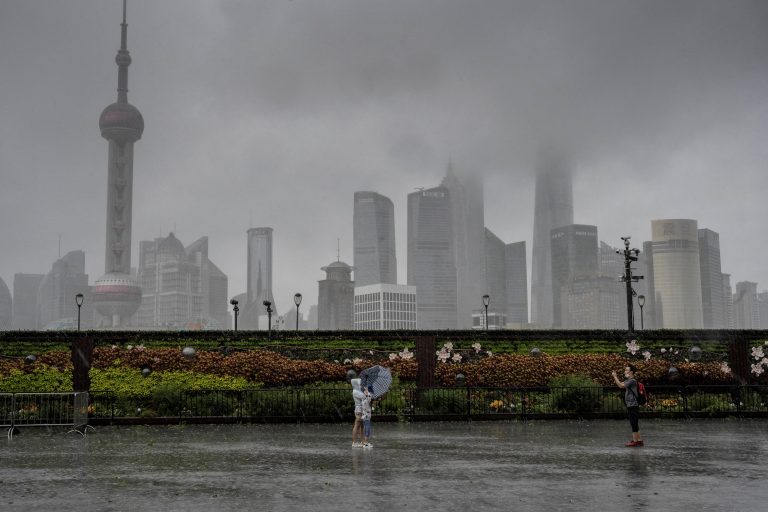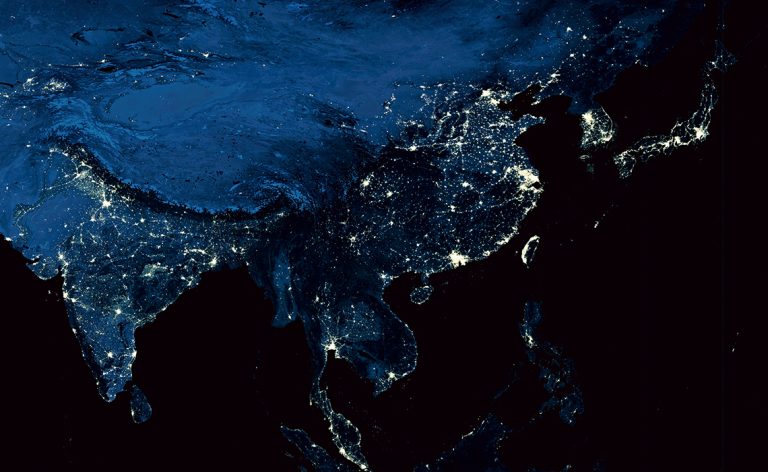For many businesses, financial gain trumps rising diplomatic tensions
News analysis
For the past two decades, China has been racing against the U.S. to gain momentum and control over the global economy. In an age of booming trade, mass improvements in innovative technology such as artificial intelligence and sophisticated weaponry, geopolitical tensions between these two financial giants seem more palpable than ever before.
Although the U.S. economy has seen its share of setbacks in this year’s third quarter, growing at its slowest pace since pre-pandemic times, economists are confident that strong consumer demand coupled with renewed ease in regulations will boost growth in coming months. And for American financial institutions, the pandemic has brought an unexpected growth in lucrative trading and merge acquisitions fueled by a volatile turn in interest rate cycles and a fervent interest in crypto currency.
Likewise, China has seen GDP growth of 2.3 percent in 2020, with a projected growth of 8.5 percent in 2021. In reality however, the nation’s growth momentum has been largely impacted by recent COVID-19 outbreaks, lagged implementation of policy and a worsening property market downturn. China’s economy is also facing structural challenges driven by its adverse demographics, tepid productivity growth and worsening legacies created by environmental pollution and poor quality control.
When examining both nations from a fiscal standpoint, neither seems to fully pull ahead on its own. However, Wall Street has seen some of its largest successes stem from Chinese ventures. Nikkei Asia reported that Goldman Sachs recently joined Morgan Stanley and insurance giant Chubb in winning regulatory approval for taking full control of its joint venture with Chinese partners — an apparent vote of confidence in the progressive liberalization of China’s financial sector.
Success
You are now signed up for our newsletter
Success
Check your email to complete sign up
This lucrative marriage of financial interests comes at a stark contrast amidst worsening diplomatic relations between the world’s two biggest economies. The Chinese Communist Party (CCP) has repeatedly threatened Taiwan — the democratically run island that Beijing claims as a breakaway province — with aerial sorties of growing size. This has in turn prompted growing protest from Washington and other democratic governments, heightening Taiwan’s international profile.
The world has also become more alert to Beijing’s hegemonic ambition after the CCP imposed a strict “national security” law on Hong Kong, the former British colony that saw massive pro-democracy demonstrations in 2019 and 2020 prior to the pandemic. Thousands have been arrested and punished under the new ordinance.
“The need to stand up to China is a strong enough motivating factor that not taking this fight would also be seen as a betrayal of American national interests,” Henry Boyd, a defense and strategic studies analyst based out of Great Britain, told Politco. U.S. State Department spokesman Ned Price also emphasized that American support for Taiwan is “rock solid” and that “the U.S. has been very clear in the commitment to deepening our ties with Taiwan.”
International companies have been quick to notice the rate at which China’s economy was growing. As noted by Lionel Barber in an Oct. 26 opinion piece published by Nikkei Asia, Western companies acquiesced even as Beijing insisted on its own companies preserving majority stakes in joint ventures or asking for undeterred access to highly prized intellectual property. China was simply too big to ignore, and Asia was the source of future growth. And we now know, many of China’s wealthiest enjoyed intimate ties with Wall Street, fueled by compelling incentives in lax regulation and global trade.
Similarly, under President Xi Jinping, international companies have enjoyed unprecedented advantages while operating on Chinese soil thanks to loosening regulations on the financial market in a bid to attract more foreign investment.
This shifting economic landscape means Chinese leaders don’t want to re-impose direct control of the economy, but want private sector companies to align with ruling party plans, said Lester Ross, head of the Beijing based law firm WilmerHale.
JP Morgan wealth management specialist Mary Erdoes said: “we are now operating on the basis of a China discount. Chinese stocks have gone on sale”
Experts are now scrambling to figure out whether Xi’s widening crackdown on China’s private sector, including tech magnate and founder of Alibaba, Jack Ma, are an attempt to divert attention from the CCP’s erosion of civil liberties. Only time will tell whether the U.S. and China can continue to co-exist as modern superpowers operating under contradicting political agendas but allowing loopholes to continue driving each other’s economies.













